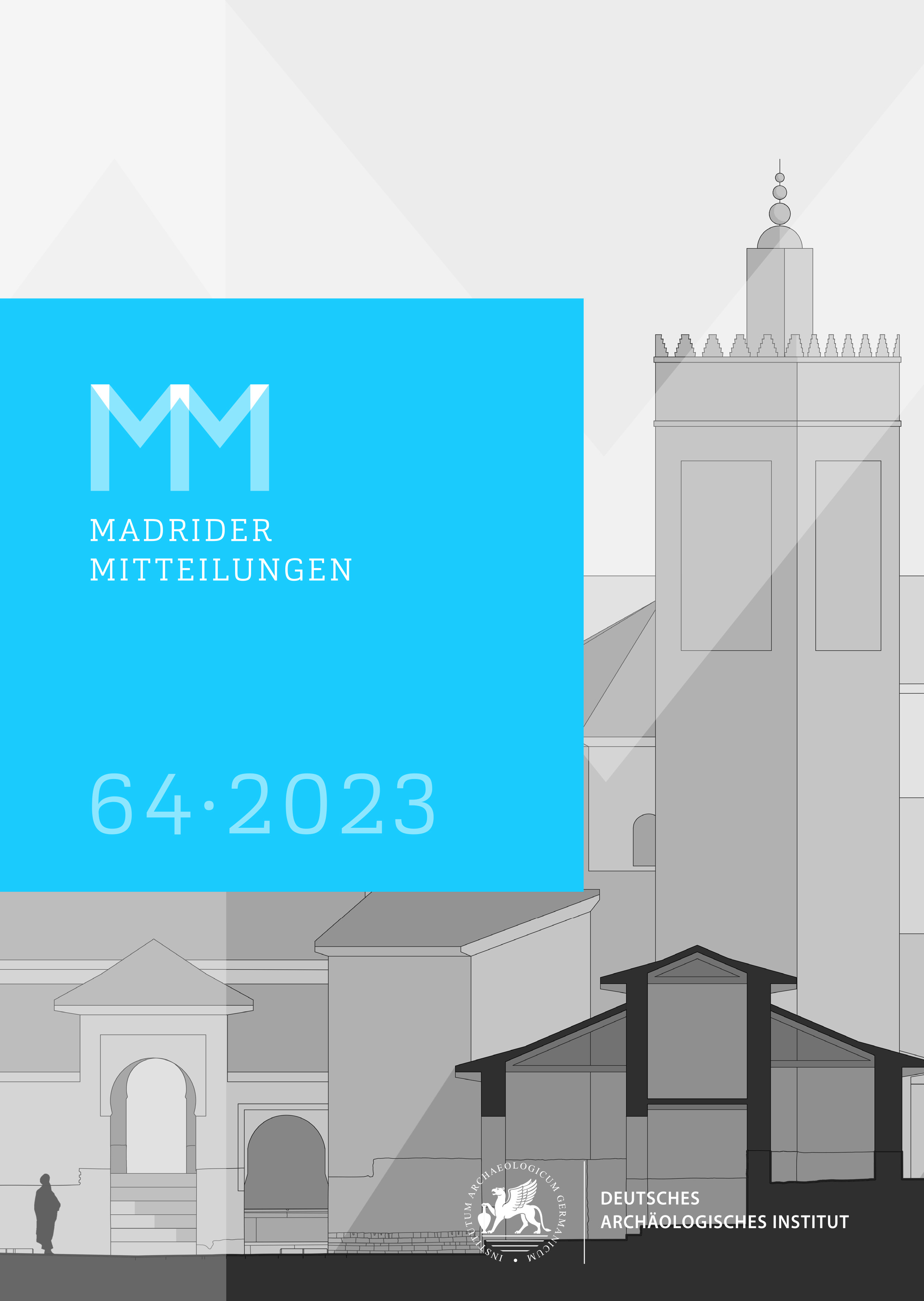EL FORO DE CARTHAGO NOVA (CARTAGENA, ESPAÑA). INFORME DE LAS CAMPAÑAS ARQUEOLÓGICAS DE 2017–2020 Y NUEVAS PROPUESTAS DE INTERPRETACIÓN
Informe de las campañas arqueológicas de 2017–2020 y nuevas propuestas de interpretación
https://doi.org/10.34780/l5x7-4hyc
Abstract
The article presents the results of excavation seasons 2017–2020 at the colonial forum of Carthago Nova (Cartagena, Región de Murcia, Spain), built at the feet of the SE slope of the acropolis (arx Hasdrubalis; currently known as Cerro del Molinete). The stratigraphic sequence is described, including the late republican and Augustan-Tiberian periods, followed by the period spanning the final decades of the 1st century and the 3rd century AD. A domestic area, characterised by a long aisle, and several public buildings, dated from the 2nd century BC to the early 1st century AD, was found to have been built upon the NW end of what has been interpreted as an earlier forum, dated from the second half of the 1st century BC to the early imperial period (Period II Phase 1–2). The excavation also documented the expansion and transformation of the forum, the NW end of which was monumentalised in the last third of the 1st century AD (Period III Phase 1–2). The area was arranged in terraces (the top one of which may have housed a dynastic sanctuary) with different buildings and monuments. These results confirm the importance of the colony during the Flavian-Hadrianic period, a poorly understood historical period in which elites took active part in evergetic practices, in parallel to the boost that the granting of the Latin status by Vespasian meant to Hispanic civic communities, which certainly contributed to the monumentalisation of public space. The conclusions present open issues and future research prospects, especially concerning the articulation of the forum area with the surrounding urban layout.
Keywords:
Hispania, Urbanismo, Arquitectura forense, Arquitectura doméstica, Excavación arqueológica, curia, marmorización, monumento en forma de pi griega, escenografía, reconstrucción 3D, patrimonio cultural





